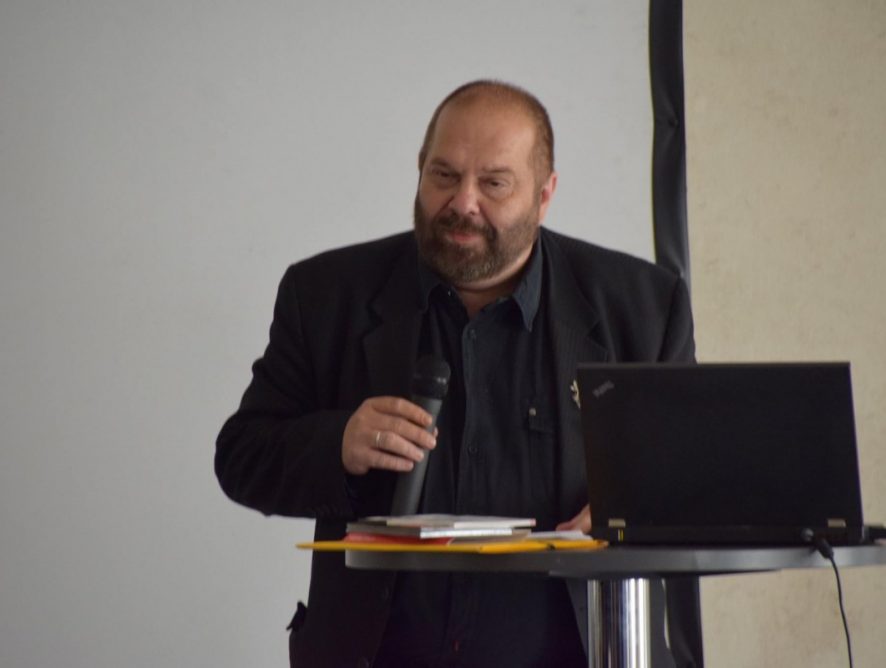By Ronald Eissens
When we first started working against online hate in 1994, the internet was like a village. Mainly universities were connected but also computer nerds and a few thousand PC-hobbyists brought online through public access projects and the first few commercial Internet Access Providers. At the time, the Internet was very ‘American’ in the sense that initially this American invention carried the dominant mores of the USA with it. Freedom of Speech above all, good speech versus bad speech and a Voltairean view of those that posted hate online. The digital frontrunners, young computer-nerds who called themselves diginauts, had the dream that the Internet would bring direct democracy and global peace. They considered the laws of the physical world as unnecessary – after all, Internet was a new world, a new reality. In this world, the slowly arriving human rights activists and anti-racists were immediately accused of being censors or promotors of censorship. When we filed a report with the Public prosecutor because of the posting of the Horst Wessel Lied, the anthem of the Nazi party, the accusations flew. We were trying to ‘destroy the free Internet’, we were ‘left-wing trash’ or to others ‘Zionist Mossad agents’ and ‘our tongues should be ripped out’. The latter was an interesting opinion coming from freedom of speech aficionados. As it often goes, those who claim freedom of speech mainly want their speech to be free.
Since those days, not a lot has changed. Although the diginauts of the first hour dissolved in the mass of billions of users, some of their old ideas linger on. Even our American colleagues still not feel too comfortable with removal of hate speech from the Internet, since it smacks of censorship, which is something that stands diametrically opposed to the freedom of speech laid down in the first article of the United States Constitution, and in U.S. jurisprudence. However, not even in the USA the freedom of speech is total, although those opposed to censorship and curbing hate speech will oftentimes claim it is. Certain limits to freedom of speech have been set by American Lawmakers; when freedom of speech conflicts with other rights and freedoms: in cases of libel, slander, pornography, obscenity, fighting words (insulting or provocative words, especially of an ethnic, racial, or sexist nature, considered unacceptable or illegal), direct incitement to violence and intellectual property.
Over the ages, rulers, governments and authorities have found it necessary or useful to use censorship. Sometimes as a tool of oppression, sometimes as a necessary way to protect democracy against an undemocratic takeover. After all, history has shown that words can be mighty weapons. National Socialism and Communism were built on words. So was Auschwitz. The moment we allow hate speech to run rampant as a part of freedom of speech, democracy will ultimately be taken over and abolished by hate mongers and tyrants. The first thing those kind of regimes will do is getting rid of free speech. This is the conundrum of democracy and the balancing act we all face. Countering online hate by direct debate and debunking of myths, ‘good speech to counter bad speech’ as the Americans say, is important. However, since people in general have shown not to have a great capacity of learning, censorship, or free speech limitations, stay the final bulwark against barbarity. The word censorship derives from the ancient Roman ‘censor’, who was a high-ranking dignitary in charge of, among other issues, supervising and maintaining public morality. That is not very different from what we are doing.
Definitions of censor/censorship
Dictionary.com: 1. A censor is an official who examines books, plays, news reports, motion pictures, radio and television programs, letters, cablegrams, etc., for the purpose of suppressing parts deemed objectionable on moral, political, military, or other grounds. 2.any person who supervises the manners or morality of others.
Cambridge Dictionary: a person whose job is to read books, watch films, etc. in order to remove anything offensive from them, or who reads private letters, especially ones sent during war or from prison, to remove parts considered unsuitable. Censorship: the act of censoring books, films, etc.
This article has been published first in German on March 21, 2017 in the ZARA Rassismus Report 2016 on page 76 & 77.
Published on 05-04-17
